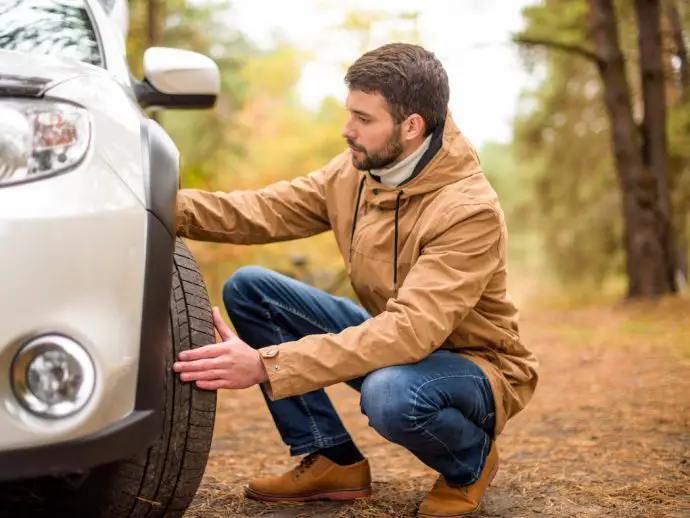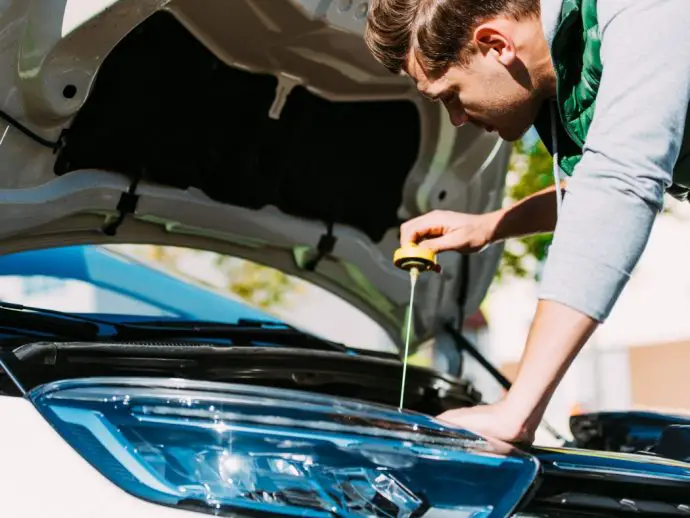Taking off on a road trip is an exciting adventure, but it requires careful prep work to ensure your journey is smooth and goes off without a hitch. Upkeep and vehicle maintenance is one of the most critical aspects of preparing for a road trip. Knowing which tasks are crucial and which can wait is vital for ensuring safety and reliability on the road. This article will guide you through essential road trip maintenance, highlighting what you must check before you hit the road and what can be deferred.
Crucial Checks Before Your Road Trip
Before you embark on your road trip, it’s essential to ensure your vehicle is in top condition to avoid any unexpected issues along the way. Focusing on crucial maintenance tasks can significantly enhance your safety and the overall quality of your journey. Here are the key checks you should perform to prepare your vehicle for the adventure ahead.
1. Check Your Oil Levels and Quality
Oil is imperative for your vehicle’s engine, and ensuring you have the correct oil level and quality is essential. Before heading out on a long trip, check your oil levels using the dipstick. Ensure the oil is clean and at the recommended level. Change the oil or top it off if it’s dirty or low. Regularly maintaining oil levels in your vehicle is crucial for preventing engine damage and ensuring smooth performance.
2. Inspect Your Tires
Your tires are the only contact point between your vehicle and the road, making them one of the most critical components to inspect before a road trip. Check the tire pressure, including the spare, and ensure it matches the manufacturer’s recommendations. Look for any signs of wear, such as uneven tread or bald spots. Replace any tires that appear damaged or worn out. Proper tire maintenance ensures better fuel efficiency, handling, and safety.

3. Test Your Battery
A dead battery can quickly turn a great road trip into a frustrating experience. Test your battery to ensure it’s holding a charge and is in good condition. Look for any corrosion on the terminals and clean them if necessary. If your battery is more than three years old, or you notice your cars energy levels fluctuating, consider replacing it before your trip.
4. Check Your Brakes
Your vehicle’s braking system is one of the most important elements for your safety on the road. Inspect the brake pads, rotors, and fluid levels. Listen for strange noises when using the brakes. It may not be an immediate worry if you notice your brakes squealing, but you should give it a peek when you have a spare moment to diagnose. Brake issues should not be ignored, as they can lead to severe safety risks.
5. Examine Your Lights and Signals
Properly functioning lights and signals are essential for safe driving, especially during night travel or in inclement weather conditions. Remember to check the car lights, in particular the headlights, brake lights, and indicator lights. Replace any burnt-out bulbs and ensure the lights are clean and clear.
6. Inspect Your Engine’s Belts and Hoses
Belts and hoses play a vital role in your vehicle’s engine operation so always keep an our out for cracks, leaks and general wear and tear. Beware broken belts and hoses as these can cause major damage to your engine. Replace any that show signs of wear before embarking on your trip.

Maintenance Tasks That Can Wait
While addressing the critical maintenance tasks mentioned above is essential for a smooth road trip, some can wait until after your adventure. These tasks are still important but don’t pose an immediate risk to your safety or vehicle performance.
1. Minor Fluid Top-Ups
While it’s crucial to check your engine oil, coolant, and brake fluid levels before a road trip, minor fluids like windshield washer fluid and power steering fluid can be topped up later. These fluids are essential for vehicle operation, but a slight delay in topping them up won’t cause immediate harm.
2. Interior Cleaning and Detailing
A clean and organized vehicle interior can make your road trip more comfortable, but it’s not a critical maintenance task. If you’re short on time, focus on the essential mechanical checks and save the interior cleaning for when you return. However, ensure your windshield and windows are clean for optimal visibility.
3. Non-Essential Upgrades
Non-essential upgrades, such as installing new seat covers or upgrading your sound system, can wait until after your trip. While these upgrades can enhance your vehicle, they don’t impact your vehicle’s safety or performance.
4. Minor Cosmetic Repairs
Small dents, scratches, and other cosmetic issues can be addressed later. These repairs don’t affect your vehicle’s operation or safety, so they can be postponed until you have more time.
Preparing an Emergency Kit
In addition to performing essential maintenance checks, assembling an emergency kit for your road trip is a wise precaution. An emergency kit can help you should you run into unexpected situations and ensure you’re prepared for any eventuality. You should plan to include the following items in your emergency kit:
- First Aid Kit: Make sure to include bandages, pain medications, and other basic medical supplies.
- Jumper Cables: In case your battery dies, these cables will help you get back on the road quickly.
- Flashlight and Extra Batteries: A flashlight is essential for nighttime emergencies or inspecting your vehicle in low light.
- Basic Tools: Include a screwdriver, pliers, adjustable wrench, and duct tape for minor repairs.
- Backup Tyre and Jack: Remember to carry a spare tyre as well as a jack and tools to change it if you need to.
- Blanket and Warm Clothes: In case you get stranded in cold weather, a blanket and warm clothes can keep you comfortable.
- Non-Perishable Food and Water: Pack some snacks and bottled water in case you get stuck for an extended period.
- Road Flares or Reflective Triangles: These will make your vehicle visible to other drivers if you need to pull over to the side of the road.

Planning Your Route and Stops
In addition to vehicle maintenance, planning your route and stops is essential for a successful road trip. Research your route in advance and identify rest stops, gas stations, and potential overnight accommodations. Planning your stops helps you stay organized and ensures you have access to essential services along the way.
1. Gas Stations and Refuelling
You should try to plan ahead and know the locations of gas stations along your planned route and map out your refuelling stops. Running out of fuel in the middle of nowhere can be stressful and even risky. Aim to refuel when your tank is about half full to avoid running low.
2. Rest Stops and Breaks
Take regular breaks during your road trip. This practice is essential for staying alert and reducing fatigue. Plan your rest stops in advance and use them to stretch, hydrate, and relax. Driving for long periods without breaks can be tiring and increase the risk of accidents.
3. Overnight Accommodations
If your road trip spans multiple days, plan your overnight accommodations in advance. Research hotels, motels, or campsites along your route and make reservations if necessary. Having a planned place to stay each night reduces stress and ensures you have a comfortable place to rest.
Ensuring a Smooth and Safe Road Trip
Proper vehicle maintenance is crucial for a safe and enjoyable road trip. By focusing on the essential checks before you hit the road and knowing which tasks can wait, you can ensure your vehicle is in top shape for your adventure. Remember to include an emergency kit, plan your route and stops, and address any critical issues promptly. With careful preparation, you can enjoy a worry-free road trip and create lasting impressions of your travel along on the open road.





